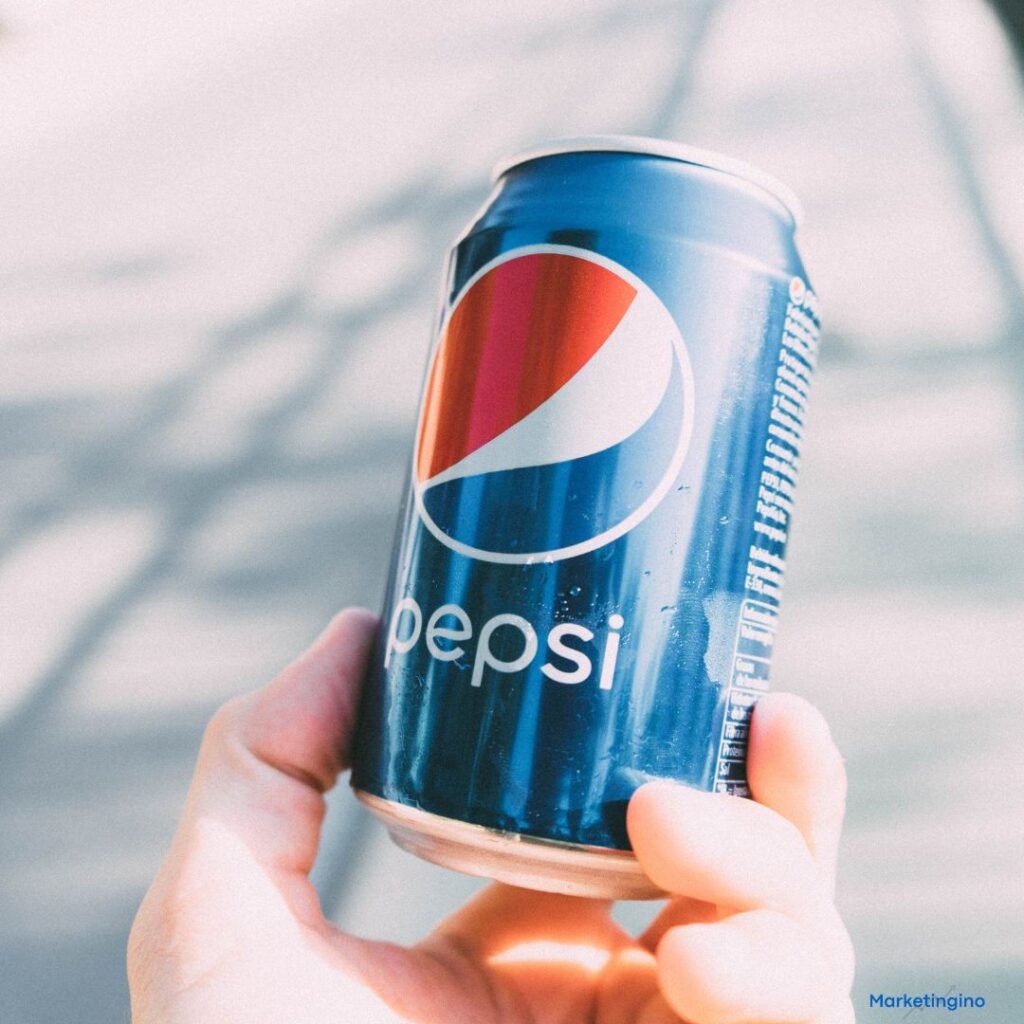Pepsi, one of the world’s leading beverage brands, has maintained its competitive edge through a dynamic and innovative marketing strategy. From iconic advertisements to sponsorships and digital campaigns, Pepsi continues to engage consumers and build brand loyalty. Here’s a detailed look at how Pepsi markets its products and sustains its global presence.
Understanding Pepsi’s Marketing Strategy
Pepsi’s marketing strategy is multifaceted, leveraging a mix of traditional and digital channels, celebrity endorsements, event sponsorships, and innovative campaigns to maintain its market position. The core elements of Pepsi’s marketing strategy include brand positioning, target market identification, product innovation, and integrated marketing communications.
Brand Positioning
Pepsi positions itself as a youthful, energetic, and fun brand. The company’s marketing campaigns often emphasize excitement, adventure, and a modern lifestyle, appealing to a younger demographic.
Key Tactics:
- Taglines and Slogans: Memorable taglines such as “Live for Now” and “For the Love of It” encapsulate the brand’s ethos.
- Visual Identity: Pepsi’s logo and color scheme are designed to be instantly recognizable and associated with a sense of refreshment and enjoyment.
Target Market Identification
Pepsi primarily targets teenagers, young adults, and millennials who are seen as trendsetters and influential consumers. The company tailors its messaging to resonate with this demographic, focusing on themes like music, sports, and pop culture.
Key Tactics:
- Market Research: Continuous market research helps Pepsi understand the evolving preferences and behaviors of its target audience.
- Cultural Relevance: Pepsi’s campaigns often reflect current trends and cultural moments, making the brand feel contemporary and relevant.
Product Innovation
Pepsi is known for its extensive product line, which includes various cola flavors, diet and zero-calorie options, and other beverages like teas, juices, and energy drinks. Innovation in product development helps Pepsi meet diverse consumer needs and preferences.
Key Tactics:
- New Product Launches: Regularly introducing new flavors and limited-edition products keeps the brand exciting and fresh.
- Healthier Options: Responding to consumer demand for healthier beverages, Pepsi has expanded its portfolio to include low-sugar and natural ingredient options.
Integrated Marketing Communications
Pepsi employs an integrated marketing communications strategy that ensures consistent messaging across all channels, including TV, print, digital, and social media. This approach maximizes reach and impact, creating a cohesive brand experience for consumers.
Key Tactics:
- Television and Print Advertising: High-profile TV commercials and print ads in magazines and newspapers help maintain brand visibility.
- Digital and Social Media: Active engagement on platforms like Instagram, Twitter, Facebook, and YouTube allows Pepsi to connect with consumers in real-time.
- Content Marketing: Pepsi creates engaging content, such as behind-the-scenes videos, influencer collaborations, and interactive social media posts.
Celebrity Endorsements and Sponsorships
Pepsi has a long history of partnering with celebrities and sponsoring major events. These endorsements and sponsorships enhance brand credibility and appeal, particularly among younger audiences.
Key Tactics:
- Celebrity Partnerships: Collaborations with high-profile celebrities and influencers, such as Beyoncé, Cardi B, and Lionel Messi, help attract attention and drive brand affinity.
- Event Sponsorships: Pepsi sponsors major events like the Super Bowl Halftime Show, music festivals, and sports tournaments, aligning the brand with entertainment and excitement.
Experiential Marketing
Pepsi excels in creating memorable experiences for consumers through experiential marketing campaigns. These initiatives engage consumers directly and create lasting impressions.
Key Tactics:
- Live Events: Hosting and sponsoring live events, such as concerts and pop-up experiences, allows Pepsi to engage with consumers in a fun and interactive setting.
- Innovative Campaigns: Unique marketing stunts and activations, such as the Pepsi Challenge taste test, generate buzz and encourage consumer participation.
Adaptability and Innovation
Pepsi’s marketing strategy is characterized by its adaptability and willingness to innovate. The brand continually evolves its approach to stay ahead of industry trends and consumer preferences.
Key Tactics:
- Market Adaptation: Pepsi adapts its marketing strategies to different markets, recognizing cultural nuances and local preferences.
- Technological Innovation: Embracing new technologies, such as augmented reality (AR) and virtual reality (VR), Pepsi creates immersive marketing experiences.
Pepsi’s marketing strategy is a blend of traditional and innovative tactics, aimed at engaging a youthful audience and maintaining a strong global presence. By understanding its target market, leveraging celebrity endorsements, sponsoring major events, and embracing new technologies, Pepsi continues to be a leader in the highly competitive beverage industry. As consumer preferences and market dynamics evolve, Pepsi’s commitment to innovation and adaptability will ensure its continued success.




